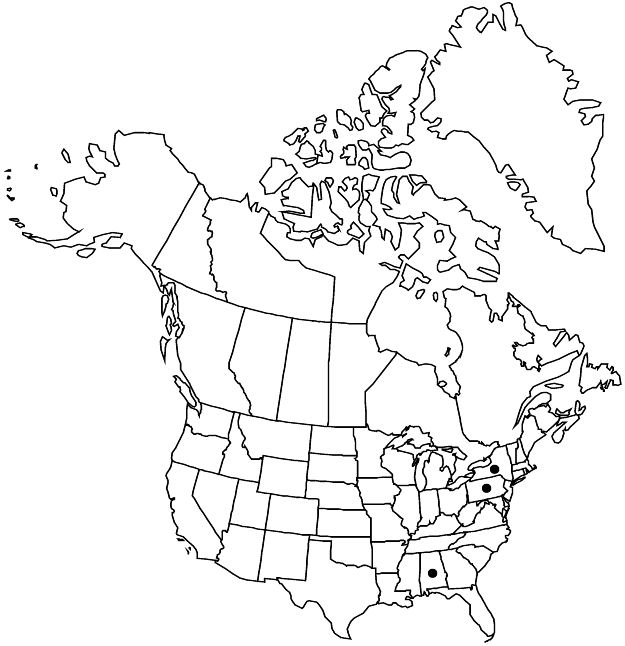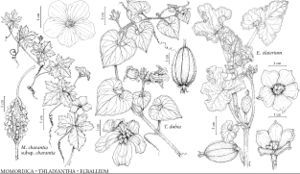Ecballium elaterium
in J. B. Bory de Saint-Vincent et al., Dict. Class. Hist. Nat. 6: 19. 1824.
Stems 15–80 cm. Leaves long-petiolate; blade bicolor, 4–10 cm, fleshy, abaxially lighter because of densely hirsute to hirsutulous vestiture. Staminate flowers 1 or 2–8 in racemes 5–35 cm. Pistillate flowers: peduncles erect, sharply recurved-nodding at apex so that mature fruit is pendent, 1–8 cm. Corollas (14–)18–20 mm diam.; petals 8–16 mm (staminate) or 6–14 mm (pistillate). Fruits 4–5.5 cm, pendulous on peduncles 1–8 cm. Seeds 4–5 mm. 2n = 18, 24.
Phenology: Flowering Jun–Aug.
Habitat: Disturbed sites
Elevation: 20–100 m
Distribution

Ala., N.Y., Pa., e, se, sw Europe, w Asia, n Africa, introduced also in w Europe (England), Australia.
Discussion
Some, perhaps all, collections of Ecballium from New York and Pennsylvania may represent garden curiosities rather than escaped or established populations.
Selected References
None.
